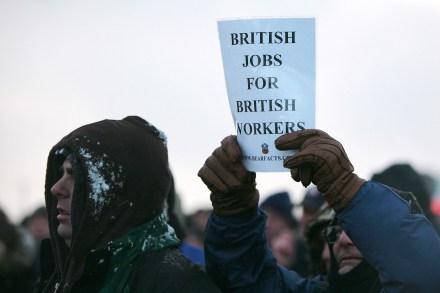Six takes on the wildcat strikes
On top of our poll, we also put the question “Do you support the wildcat strikers?” to various friends of Coffee House. Here are some of their responses: Matthew Parris Businesses importing labour into recession-hit places need tact. An offshore barge filled with foreign workers was not unlawful but it was inflammatory. There’s something to be said for ministers being able to play Soft Cop to organised labour’s Hard Cop: look, you’re within your rights, old chap, but my friend Mr Wildcat-Striker has a nasty temper on him. Couldn’t we find a middle way? Matthew Parris is a columnist for the Times and The Spectator Douglas Murray Yes. The wildcat strikes are a terrific demonstration of










